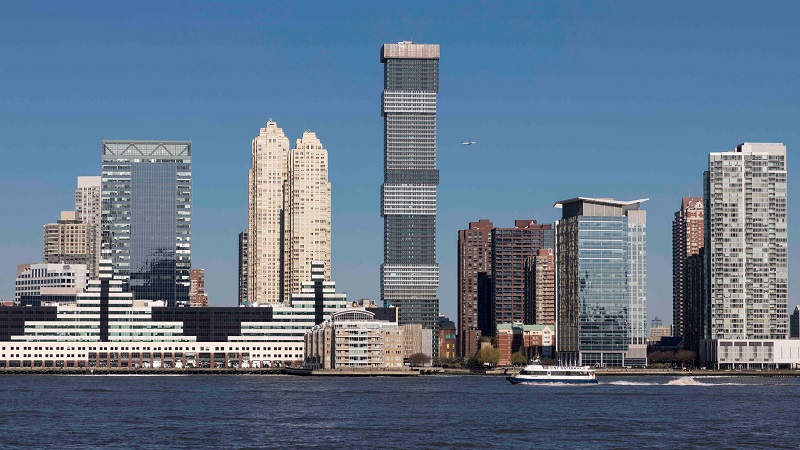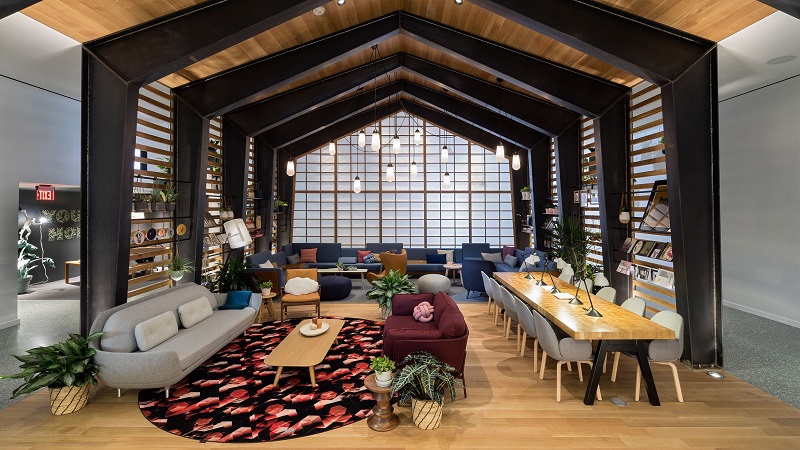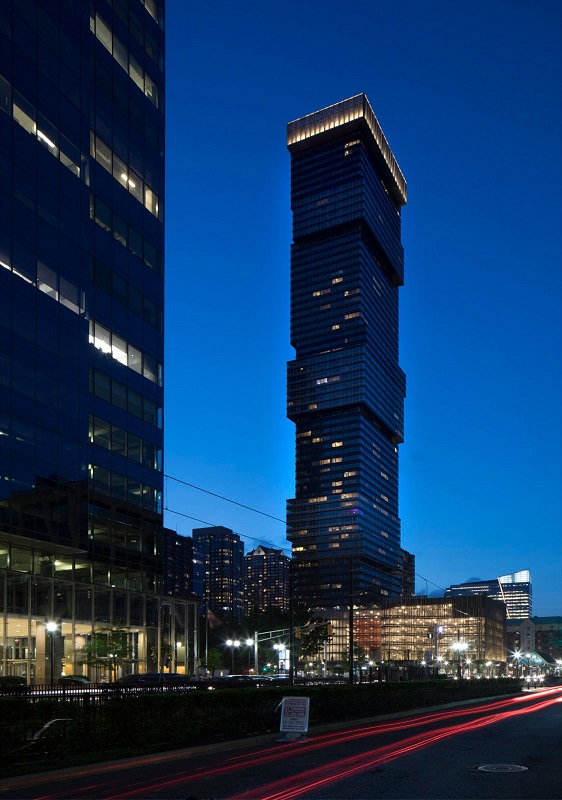Jersey City Urby
In May 2017, the Dutch architecture studio Concrete completed a new high-rise apartment tower in New York City.
Jersey City Urby is a 69-storey skyscraper in Jersey City, across the Hudson River from Lower Manhattan. It reaches a height of 217 m (713 ft), making it the tallest residential building in New Jersey.
The design is characterised by irregularly stacked blocks, with floor plates cantilevering out over the storeys below.
The building contains 762 rental units, ranging from studios to one- and two-bedroom apartments. The design of the apartments is intended to ‘make smart use of space’, with built-in wall units serving as desks, shelving and storage space.
The building also contains a range of amenity spaces ‘designed to foster natural opportunities for residents to meet and interact’, including a residency program for scientists and artists, and a Creative Lab on the 68th floor.
On the ninth floor, the building offers a fitness centre and a light-filled communal kitchen and dining area. This level also houses a heated saltwater pool and outdoor deck, which can be used for parties, movie screenings and morning meditations.
According to Concrete; "Urby is a rethink of the residential rental-housing concept that is design-driven, tailored to fit every neighbourhood, and developed with the needs of the contemporary urban renter in mind".
The first Urby project opened in 2016 on New York's Staten Island, and a third is scheduled to open in the summer of 2017 in Harrison, New Jersey.
Images and content courtesy of Concrete.
Photography © Ewout Huibers.
[edit] Find out more
[edit] Related articles on Designing Buildings Wiki
Featured articles and news
Government consultations for the summer of 2025
A year of Labour, past and present consultations on the environment, the built environment, training and tax.
CMA competitiveness probe of major housing developers
100 million affordable housing contributions committed with further consultation published.
Homes England supports Greencore Homes
42 new build affordable sustainable homes in Oxfordshire.
Zero carbon social housing: unlocking brownfield potential
Seven ZEDpod strategies for brownfield housing success.
CIOB report; a blueprint for SDGs and the built environment
Pairing the Sustainable Development Goals with projects.
Types, tests, standards and fires relating to external cladding
Brief descriptions with an extensive list of fires for review.
Latest Build UK Building Safety Regime explainer published
Key elements in one short, now updated document.
UKGBC launch the UK Climate Resilience Roadmap
First guidance of its kind on direct climate impacts for the built environment and how it can adapt.
CLC Health, Safety and Wellbeing Strategy 2025
Launched by the Minister for Industry to look at fatalities on site, improving mental health and other issues.
One of the most impressive Victorian architects. Book review.
Common Assessment Standard now with building safety
New CAS update now includes mandatory building safety questions.
RTPI leader to become new CIOB Chief Executive Officer
Dr Victoria Hills MRTPI, FICE to take over after Caroline Gumble’s departure.
Social and affordable housing, a long term plan for delivery
The “Delivering a Decade of Renewal for Social and Affordable Housing” strategy sets out future path.
A change to adoptive architecture
Effects of global weather warming on architectural detailing, material choice and human interaction.
The proposed publicly owned and backed subsidiary of Homes England, to facilitate new homes.
How big is the problem and what can we do to mitigate the effects?
Overheating guidance and tools for building designers
A number of cool guides to help with the heat.
The UK's Modern Industrial Strategy: A 10 year plan
Previous consultation criticism, current key elements and general support with some persisting reservations.
Building Safety Regulator reforms
New roles, new staff and a new fast track service pave the way for a single construction regulator.




























